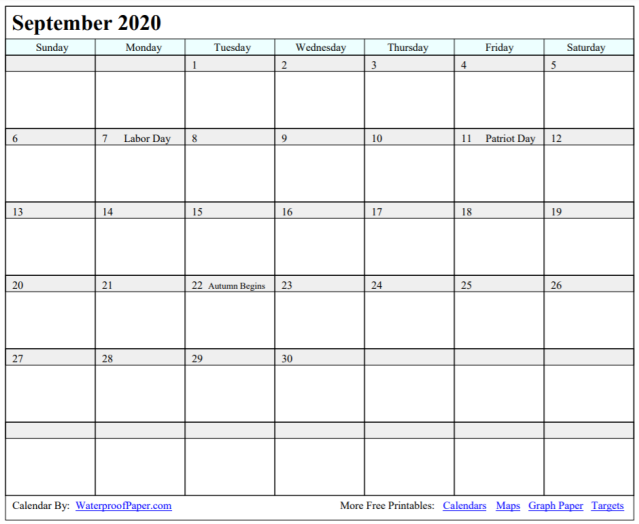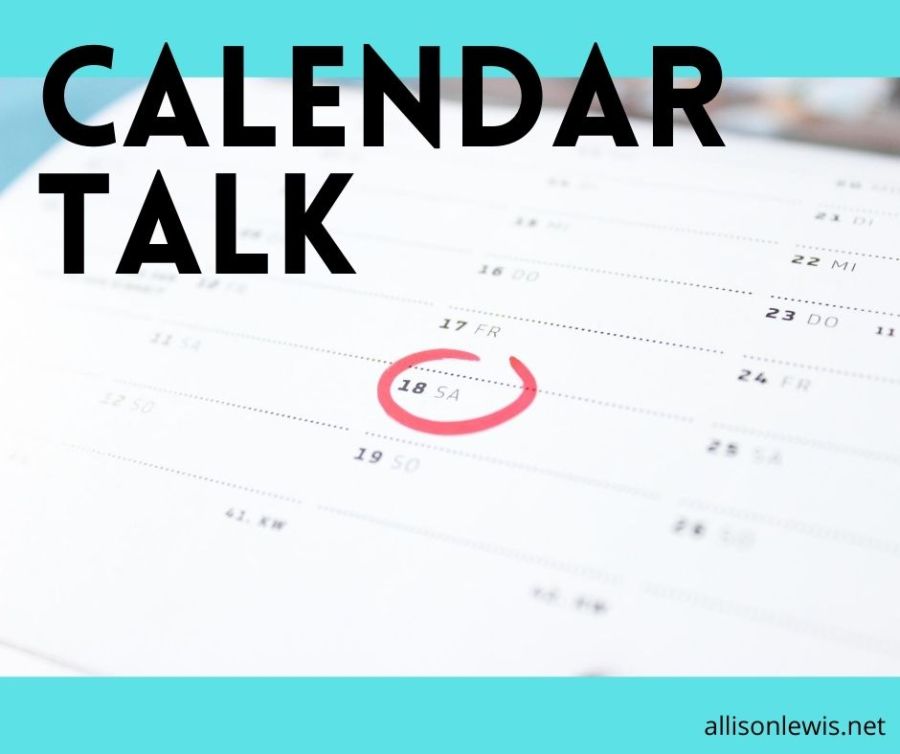Do you remember when you were in elementary school and you got to sit down on the floor with your classmates and gather around your teacher while they talked to you about the calendar and dates?

Photo from Wikimedia Commons
That’s what Calendar Talk is based on, but it’s adapted to the cognitive level of our students.
A few years ago, I started seeing some World Language teachers talking online about doing Calendar Talk with their students. (Here are two videos of Tina Hargaden doing it in her middle school Spanish and French classes.)
I started doing it, too, though I don’t do it every day like some teachers do. Some teachers ask students questions at the start of class every day, like: What is the date today? What day of the week is it? What was yesterday? What is tomorrow?, etc.
I do that occasionally—especially with lower-level students, who are still new to learning dates. But with higher-level students, I usually just do Calendar Talk at the beginning of every month. I think this help keeps it more interesting (since we don’t do it too often), and it turns into a longer discussion. I also focus more on talking about holidays or events coming up in the month rather than just talking about the dates on the calendar.

To do Calendar Talk, I just display that month’s calendar so my students can look at it and I can point to dates on the calendar as we talk. (I usually use the free, downloadable calendars on WaterproofPapers.com/calendar).
Then we just talk about the upcoming month. I usually ask them some of these questions during our discussion:
- What is the date today?
- How many days are in this month?
- What holidays are in this month? What dates are they on? This topic can lead to a lot of other questions—Will you do anything to celebrate this holiday? What will you do? Do you like this holiday—why or why not? Do people in your home country celebrate this holiday? What do they usually do? (One note: When discussing religious holidays or holidays on other potentially sensitive topics, I avoid calling on students individually to tell the class if or how they celebrate. Instead, I just let students volunteer to talk about how they celebrate if they want to. Or you can also just talk about traditions in general—e.g., What are some common Christmas traditions? Have you seen any stores with Christmas decorations yet?)
- Are there any holidays celebrated in your home country/culture this month? How do people celebrate those holidays? This is a good question to help encourage students to share about their own cultural backgrounds and to help them feel welcomed and included in the class. It’s also usually interesting for the other students and for me to hear about other holidays.
- Does anyone have a birthday this month? Or other special events this month?
- Are you excited for this month? Why or why not? This question sometimes leads into a discussion about the weather we expect to have that month and whether we like it or not. I also sometimes ask, What are you most looking forward to this month?
I let the discussion go on for as long as the students seem interested. It usually lasts around 15 minutes for me with my classes, though sometimes longer if there is a lot to talk about for a particular month.
Calendar Talk can sometimes generate some interesting discussion, and I think it’s also a good way to naturally use calendar-related vocabulary (like the names of months and days of the week) to give students more exposure to them. And I’ve found that even advanced-level students often still use cardinal numbers instead of ordinal numbers when saying dates (e.g., saying August twenty-one instead of August twenty-first). So talking about dates on the calendar can give students a lot of opportunities to hear and say ordinal numbers. (I don’t really use Calendar Talk as a “lesson” on ordinal numbers. But the students hear me using ordinal numbers when I’m talking about dates, and I sometimes provide recasts when I hear students using cardinal numbers. Every once in a while, I might mention to the class something like, “Remember that we say September eighteenth, not eighteen.“)
Back when I used to use a textbook, I would spend a few weeks just talking about dates, names of months, and days of the week during the calendar unit that is included in almost every lower-level textbook. It got very boring after a while! I think it’s a lot more interesting to integrate these discussions into class over time, doing just a little bit every day or every few weeks or every month. And for language acquisition, I think it’s probably better for students to hear new words spaced out over time instead of hearing the calendar-related words many times for a few weeks and then not hearing them at all again for months. (Chris Stolz has a good blog post on this topic, called “How Should I Teach Boring Stuff?“)
I’ve continued using Calendar Talk while doing online instruction. Now I just pull up the calendar over a shared screen on Zoom during synchronous class sessions, and we can talk about the month like we did when we were in a classroom. I sometimes use the Poll feature on Zoom to ask for my students’ opinions about certain holidays or other things related to the month. Then we can look at the results and talk about them together. If you’re doing asynchronous instruction, you could just have students write and submit their answers to questions related to the upcoming month.
Next Tuesday is the first day of September (I can’t believe it’s almost September!), so next Tuesday in class, I’ll display this September calendar, and my students and I can talk about holidays like Labor Day, Patriot Day, the first day of fall…and anything else that comes up in our discussion!


Great ideas!
LikeLike
Thank you for sharing!! Good stuff!
LikeLiked by 1 person